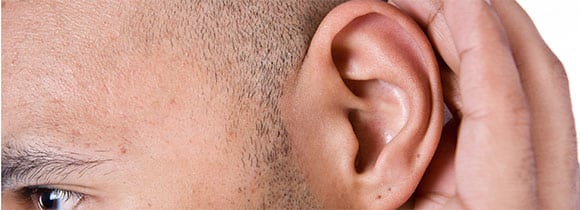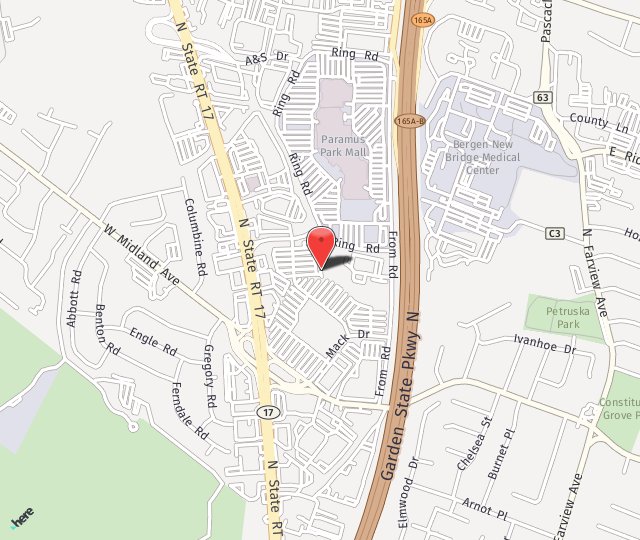
For a child, few things are more embarrassing than protruding or malformed ears. Teasing and ridicule at school can really impact the way a child develops his or her self-confidence and overall self-image.
What Is Otoplasty?
Otoplasty is the clinical term for ear reshaping surgery. While it is usually performed on children, otoplasty can fix the ears of anyone of any age. Dr. Ferraro also uses ear surgery to fix issues such as torn and overstretched earlobes. Otoplasty does not affect hearing and provides significant psychological benefits to anyone who is teased about ear size and/or shape, has had a serious ear injury, or simply wants to improve his or her appearance. Otoplasty is most often performed to set unusually protruding ears closer to the head (ear pinning) or to reduce the size of abnormally large ears.
What Concerns Can Be Fixed With Ear Surgery?
Ear surgery can address a number of conditions. The most common form is ear pinning, where the focus is to “pin” the ears closer to the head. Here are the conditions solved with otoplasty:
- Protruding ears
- Overly large ears
- Misshapen ears
- Lop ear (the top of the ear folds downward)
- Shell ear (There is no outer border of cartilage)
- Overly large earlobes
- Torn or stretched earlobes
- Earlobes with creases and wrinkles
- Cauliflower ear (which results from repeated trauma)
- Microtia (abnormally small ears)
New ears or parts of ears can be constructed for patients who are missing them from causes that include birth defects, severe injuries, and skin cancers.
Risks And Complications Of Otoplasty
Complications of otoplasty are rare and usually minor. A small percentage of otoplasty patients develop a blood clot in the ear or an infection in the cartilage. These issues may be resolved on their own or be treated medically through intervention or antibiotics. Other possible complications include a change in skin sensation at the surgical site. There is also a possibility that a patient will not be satisfied with the appearance of the ears post-surgery. A patient should not expect the ears to match exactly; even natural ears are not entirely symmetrical.
Candidates For Otoplasty
People of any age who feel self-conscious about their ears may be good candidates for otoplasty, although it is typically performed on children between 4 and 14 years old. Ears are almost fully developed by the of age 4, so early surgery can help create self-confidence when a child begins going to school. Not everyone is a candidate for otoplasty; a patient must be in good general health and have realistic expectations of what it can do.
What Age Can Ear Surgery Be Performed?
When pinning the ears in a child, the surgery can happen as soon as age four. At this point, the ears are basically fully grown. Plus, this timeframe has the added benefit of heading off teasing in school before it can happen.
For others, otoplasty can be performed and be beneficial at any age.
The Otoplasty Procedure
Otoplasty generally takes two to three hours and is performed on an outpatient basis. The type of anesthesia used typically depends on the age of the patient, with general anesthesia recommended for very young patients and local anesthesia and a sedative recommended for older children and adults.
Otoplasty begins with a small incision being made behind the ear in the natural crease where the ear meets the head. The cartilage is then sculpted and bent to achieve the desired appearance. In some types of otoplasty, skin is removed, but the cartilage is left in one piece and merely bent back on itself to create a less protruding ear.
After sculpting the cartilage to the desired shape, sutures and a bandage are used to hold the ear in position until healing is complete. To achieve a more symmetrical appearance, both ears may be operated on, even if only one has a problem.
Recovery After Otoplasty
Although the ears may ache or throb for a few days, patients usually feel normal within hours of the surgery's completion. Medication is prescribed to help alleviate any discomfort. A few days after otoplasty, the bandages around the head are replaced with a surgical dressing that is worn for about a week, at which point the stitches are removed. Otoplasty patients should avoid sleeping on their sides for the first two weeks after surgery. About one-week following otoplasty, most patients are able to return to their normal routines.
After the ears have healed completely, they usually have faint scars on their backs, which typically fade with time and, because of their strategic placement, are virtually invisible.
What Is Earlobe Repair?
Earlobe repair simply involves bringing the sides back together. The goal, obviously, is to minimize scarring. In the future, earrings need to not be worn in the area of the incision.
How Can I Prepare for My Otoplasty Surgery?
Preparing for your otoplasty surgery can help you have a complication-free procedure and recovery process. Before committing to your otoplasty appointment, ensure you can do the following to prepare properly:
- Consult your primary doctor about stopping any medications that may interfere with your otoplasty.
- Take all necessary medical evaluations and lab tests.
- Avoid vitamins, supplements, and medications that can increase bleeding.
- Quit smoking at least six weeks before your otoplasty.
- Arrange transportation with a loved one.
- Wear comfortable clothing to your otoplasty appointment.
- Remove any earrings or jewelry from your ears before undergoing your otoplasty.
- Ask Dr. Ferraro any last questions you may have.
What Questions Should I Ask During My Consultation?
Understanding the ins and outs of how an otoplasty in Paramus, NJ, can affect and benefit you is important. During your initial consultation, you can ask Dr. Ferraro personalized questions such as the following:
- Am I a good candidate for an otoplasty?
- Are there any risks that can impair my healing process?
- Will my otoplasty change my hearing ability?
- Can you show a visual representation of what I might look like after my otoplasty?
- Do you have any before or after pictures of your past patients you can share?
- What do you recommend are the best recovery tips for me?
With these questions answered, we hope that you’re able to approach your otoplasty with confidence here at Plastic Surgery Specialists of New Jersey.
Is Otoplasty Covered By Insurance?
Because an otoplasty procedure is typically cosmetic, it is often not covered by most insurance companies. However, if an otoplasty is recommended to help relieve medical symptoms in any way, it may be possible your insurance can cover a part of your otoplasty procedure. To find out, we recommend contacting your healthcare insurance provider before committing to your otoplasty to plan for your procedure properly financially.
When Can I Expect to See Results?
Results from an otoplasty in Paramus, NJ, can be seen almost immediately, but the overall appearance of your new ears will be most visible after a successful recovery is achieved. Many patients experience an increase in self-confidence with the new appearance of their ears.
Read what our patients are saying!
"I was extremely nervous about having a breast augmentation, although I planned for one for nearly two years. I consulted with numerous surgeons but my search ended when I consulted with Dr. Ferraro. He was the only surgeon that didn’t try to “sell” himself or convince me to have a procedure I didn’t need (lift). He made me feel comfortable, never rushed me, listened to what I wanted, answered every single question I had. I met with him 3 times before proceeding with surgery because I seemed to always have more questions. The day of surgery ran super smooth, we talked again about what I wanted the final result to look like and he explained the entire procedure in detail. After surgery Dr. Ferraro followed up with me in the evening and made sure I was comfortable and explained the next steps. I am now several weeks post op. I cannot believe how natural my breasts look there is nearly no way to tell I had a breast augmentation. The scars are healing beautifully with only faint remnants. I am extremely comfortable with my improved self. Dr. Ferraro has a great eye and really listens and delivers EXACTLY what his patient wants. He is a great surgeon and I highly recommend him to anyone."

